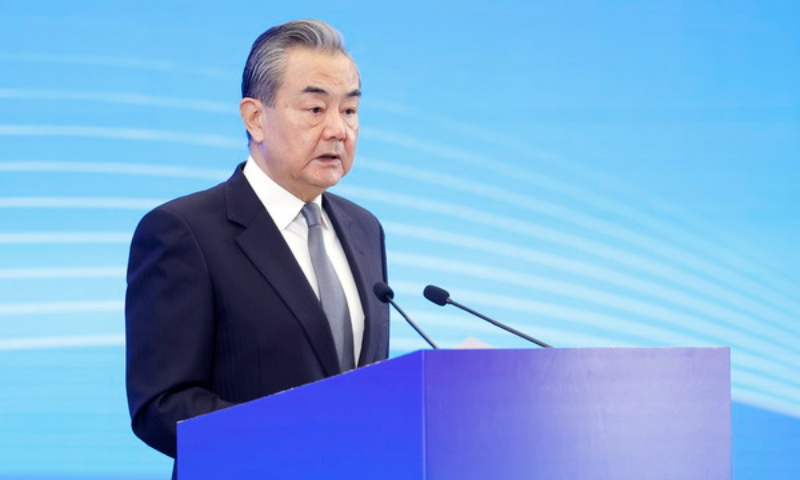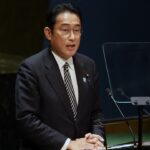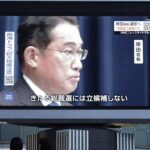A demonstration of China’s commitment to regional peace, devt: expert
Chinese Foreign Minister Wang Yi kicked off his four-day trip to Southeast Asian countries on Wednesday, with a visit to Myanmar and then traveling to Thailand to co-chair the ninth Lancang-Mekong Cooperation (LMC) Foreign Ministers’ Meeting, where he is also set to attend the Informal Discussion Between the Foreign Ministers of China, Laos, Myanmar and Thailand.
Chinese analysts said that Wang’s visit is a demonstration that China, as a responsible power, is always devoted to promoting in-depth cooperation on economic, social and security issues with equality and mutual benefit with neighboring countries under the concept of a community of shared future for mankind.
In the context of external interference in and distraction over South China Sea issue, analysts noted that Wang’s visit will further strengthen communication and coordination between China and ASEAN countries, which highlights the common aspiration of regional countries to pursue peace, stability and prosperity.
Constructive role
Wang met with Myanmar leader Min Aung Hlaing in Naypyitaw on Wednesday, according to the Chinese Foreign Ministry.
As a friendly neighbor, China opposes turmoil and war in Myanmar, opposes interference in Myanmar’s internal affairs by external forces, and opposes any attempts to sow discord in China-Myanmar relations and smear China, Wang said.
The Myanmar leader said that Myanmar attaches great importance to its relations with China, is committed to developing bilateral friendship. It firmly adheres to the one-China principle and is willing to remain a friendly neighbor that China can trust forever.
Myanmar is also willing to continue to cooperate with China to jointly crack down on transnational crimes such as telecom fraud, and will never allow any act that undermines China’s security and interests, Min Aung Hlaing said, according to the Chinese Foreign Ministry.
On Wang’s visit to Myanmar, a Chinese foreign ministry spokesperson said on Tuesday that it is aimed at deepening bilateral mutually beneficial cooperation in various fields, cementing the close bond of friendship between the two peoples, and advancing the building of the China-Myanmar community with a shared future. As a friend and neighbor of Myanmar, China strictly follows the principle of non-interference in other countries’ internal affairs, supports Myanmar’s efforts to uphold stability, grow the economy and improve people’s livelihoods, and provides constructive help for parties in Myanmar to properly address differences through political consultation within the framework of the constitution and other laws, the spokesperson added.
In response to an inquiry regarding Deng Xijun, Chinese special envoy for Asian affairs, has arrived in Nay Pyi Daw, Chinese foreign ministry spokesperson Mao Ning said on August 9 that “We have been committed to, in our own way, encouraging and urging relevant parties in Myanmar to stop the fighting, resolve issues through dialogue and consultation, and work to realize ethnic solidarity as well as stability and development of the country at an early date. China will continue to actively promote talks for peace and provide support and assistance to Myanmar’s peace process to the best of our capability.”
Wang’s visit to Myanmar showcases that China hopes to play a positive and constructive role on the peace and stability in Myanmar, said Zhu Feng, director of the Institute of International Studies at Nanjing University, noting that the three global initiatives put forward by China emphasize sustainable cooperation, development and peace.
Xu Liping, director of the Center for Southeast Asian Studies at the Chinese Academy of Social Sciences, told the Global Times that although China may provide some constructive help, the key to the solution lies in whether the political parties in Myanmar have real sincerity to negotiate a cease-fire and bring the country back to a normal track.
Common aspiration
After his visit to Myanmar, Wang will head to Thailand to co-chair the ninth LMC Foreign Ministers’ Meeting. Analysts said that further enhancing the LMC will be the focus of Wang’s trip as China and regional countries will also further deepen cooperation in non-traditional security.
According to the Chinese Foreign Ministry spokesperson, the LMC is an innovative type of regional cooperation mechanism among China, Cambodia, Laos, Myanmar, Thailand and Vietnam featuring collaboration, consultation and shared benefit. Since its launch in 2016, the mechanism has delivered fruitful results, contributing effectively to the economic and social development of the six Lancang-Mekong countries, and bringing tangible benefits to their peoples.
The spokesperson said that all countries in the Mekong region are engaged in building a community with a shared future both bilaterally with China and multilaterally under the LMC mechanism.
China hopes to work with Mekong countries at the LMC Foreign Ministers’ Meeting to review the progress of cooperation, take stock of past experience, and plan the next steps to advance the LMC, to build the Lancang-Mekong region into an exemplar for high-quality Belt and Road cooperation, a pacesetter for implementing the Global Development Initiative, a pioneer for implementing the Global Security Initiative and a frontrunner for implementing the Global Civilization Initiative, and form an even closer community with a shared future for Lancang-Mekong countries, the spokesperson added.
On the sidelines of the LMC meeting, at the invitation of Thailand, Wang will attend the Informal Discussion Between the Foreign Ministers of China, Laos, Myanmar and Thailand to exchange views on the regional situation, and on jointly combating cross-border crimes and other issues, the spokesperson said.
“The LMC is already a complete cooperation mechanism,” said Xu.
Wang’s visit to Southeast Asia comes amid heightened tensions between China and the Philippines over the latter’s continuous provocation in the South China Sea. On August 8, despite China’s goodwill efforts to calm tensions, the Philippines dispatched a military aircraft to illegally enter the airspace over China’s Huangyan Dao, and issued a complaint later on August 10 over the professional and legitimate actions by the Southern Theater Command of the Chinese People’s Liberation Army (PLA) in response to its intrusion.
The visit is, to a large extent, also aimed at strengthening communication and dialogue between China and ASEAN countries on the South China Sea issue and further elaborate China’s position and policy, Zhu said. “It is also expected that ASEAN countries and China would strengthen their coordination and unity.”
China and Indonesia held their first Senior Officials’ Meeting of the Joint Foreign and Defense Ministerial Dialogue on Tuesday.
GT




